
Thun: The Gateway to the Bernese Oberland
Thun is a charming city located on the shores of Lake Thun, with the majestic Alps serving as a picturesque backdrop. Known for its medieval old town, Thun offers a blend of history, culture, and natural beauty that is sure to captivate any visitor. The city’s castle, Schloss Thun, dates back to the 12th century and offers panoramic views of the city and lake from its tower. Wander through the cobblestone streets, where you’ll find quaint shops, cafes, and historic buildings that tell the story of Thun’s rich past. A visit to Thun is incomplete without exploring its beautiful lake. Lake Thun is perfect for sailing, swimming, and relaxing by the water. Take a scenic boat ride to enjoy the stunning landscapes, or visit one of the many lakeside restaurants for a meal with a view. The lake's clear waters and surrounding mountains make it a haven for outdoor enthusiasts. Thun is also a gateway to the Bernese Oberland, a region known for its breathtaking mountain scenery and outdoor activities. Whether you’re interested in hiking, skiing, or simply soaking in the natural beauty, Thun provides easy access to some of Switzerland’s most iconic landscapes. With its blend of historical charm and natural splendor, Thun is a must-visit destination for anyone traveling to Switzerland.
Local tips in Thun
- Visit Schloss Thun early in the morning to avoid crowds and enjoy the best views from the tower.
- Take a boat tour on Lake Thun for a unique perspective of the surrounding mountains and picturesque villages.
- Explore the old town on foot to fully appreciate its medieval architecture and hidden alleyways.
- Try local Swiss dishes at one of the lakeside restaurants for an authentic culinary experience.
- Use Thun as a base to explore the Bernese Oberland, with easy access to famous destinations like Interlaken and Jungfraujoch.
Thun: The Gateway to the Bernese Oberland
Thun is a charming city located on the shores of Lake Thun, with the majestic Alps serving as a picturesque backdrop. Known for its medieval old town, Thun offers a blend of history, culture, and natural beauty that is sure to captivate any visitor. The city’s castle, Schloss Thun, dates back to the 12th century and offers panoramic views of the city and lake from its tower. Wander through the cobblestone streets, where you’ll find quaint shops, cafes, and historic buildings that tell the story of Thun’s rich past. A visit to Thun is incomplete without exploring its beautiful lake. Lake Thun is perfect for sailing, swimming, and relaxing by the water. Take a scenic boat ride to enjoy the stunning landscapes, or visit one of the many lakeside restaurants for a meal with a view. The lake's clear waters and surrounding mountains make it a haven for outdoor enthusiasts. Thun is also a gateway to the Bernese Oberland, a region known for its breathtaking mountain scenery and outdoor activities. Whether you’re interested in hiking, skiing, or simply soaking in the natural beauty, Thun provides easy access to some of Switzerland’s most iconic landscapes. With its blend of historical charm and natural splendor, Thun is a must-visit destination for anyone traveling to Switzerland.
When is the best time to go to Thun?
Iconic landmarks you can’t miss
Thun Castle
Discover the historic beauty and cultural treasures of Thun Castle, a majestic Swiss landmark with stunning views and rich heritage.
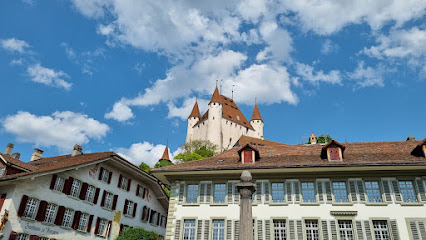
Schloss Schadau & Schadau-Park
Explore the majestic Schloss Schadau & Schadau-Park, a perfect blend of history, stunning views, and serene landscapes on the shores of Lake Thun.
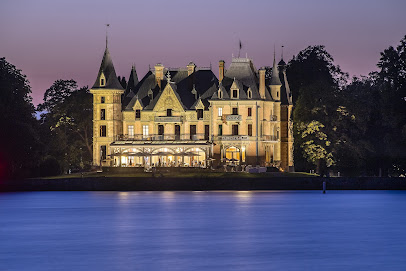
Schloss Oberhofen
Discover the enchanting Schloss Oberhofen, a historical castle on Lake Thun offering breathtaking views, rich history, and delightful dining experiences.
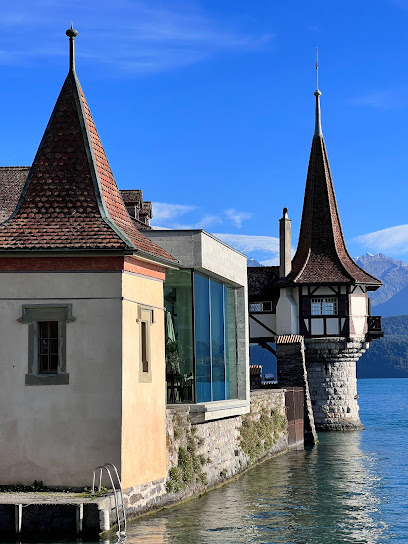
Bonstettenpark
Experience the tranquility of Bonstettenpark in Thun, Switzerland, where nature and relaxation intertwine amidst stunning landscapes.
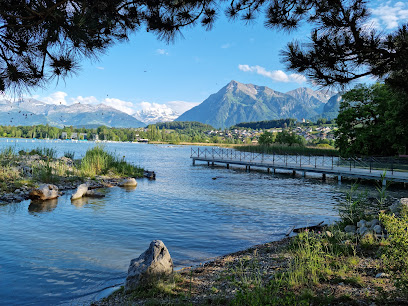
Hotel Seepark Thun
Experience the serene beauty of Lake Thun at Hotel Seepark, a luxurious retreat offering fine dining, wellness services, and stunning views.
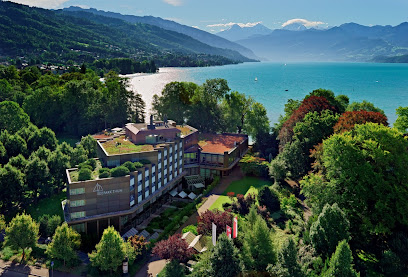
Flusswelle Thun
Discover the adventure of Flusswelle Thun, Switzerland's premier surfing destination, set against a stunning alpine backdrop.
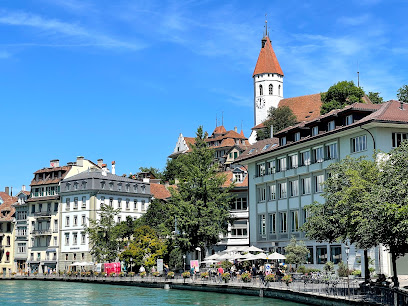
Wocher Panorama
Discover the enchanting Wocher Panorama in Thun, a historical landmark offering stunning views and a glimpse into the region's rich cultural heritage.
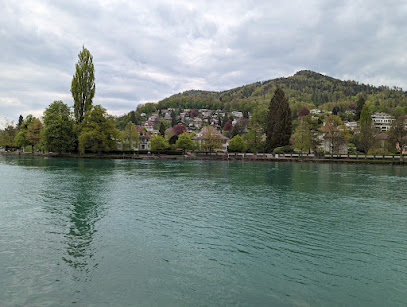
Kunstmuseum Thun
Explore the vibrant collection of contemporary and modern art at Kunstmuseum Thun, a cultural gem in the heart of Switzerland's picturesque Thun.
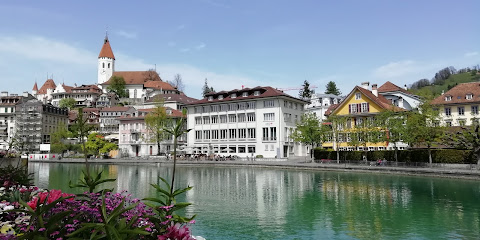
Thun Altstadt
Explore Thun Altstadt: A Historical Landmark with Picturesque Streets, Stunning Views, and Authentic Swiss Culture Awaiting You.
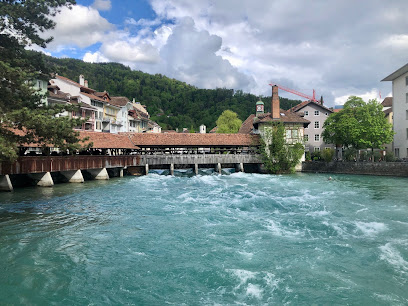
Thun-Thunersee Tourismus Welcome-Center
Explore Thun's stunning landscapes and rich culture with expert insights from the Thun-Thunersee Tourismus Welcome-Center, your gateway to unforgettable experiences.
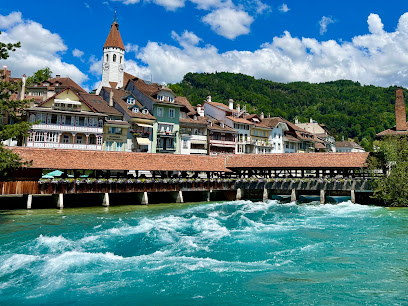
Stadtmauer
Explore the Stadtmauer of Thun, a stunning historical landmark showcasing medieval architecture and breathtaking views of the Swiss landscape.
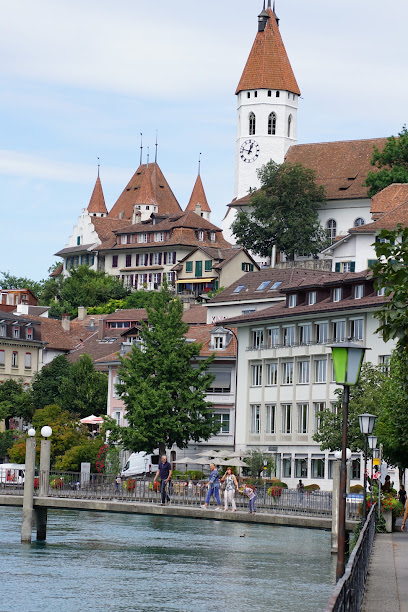
Thunfest
Experience the vibrant Thunfest, a cultural festival celebrating Swiss heritage with music, food, and local crafts in the picturesque town of Thun.
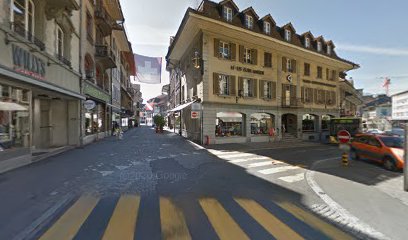
Kirchtreppe
Experience the breathtaking beauty and rich history of Kirchtreppe, a scenic gem in Thun, Switzerland, perfect for every traveler seeking adventure.
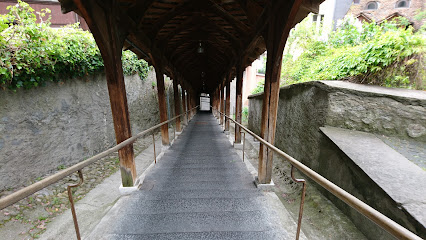
Brunnen
Experience the breathtaking beauty and tranquility of Brunnen, a captivating lakeside village nestled in the Swiss Alps, perfect for relaxation and adventure.
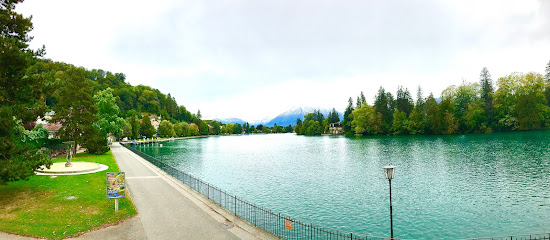
Pavillon
Discover the Pavilion in Thun, a stunning historical landmark where six paths converge, surrounded by breathtaking Swiss landscapes.
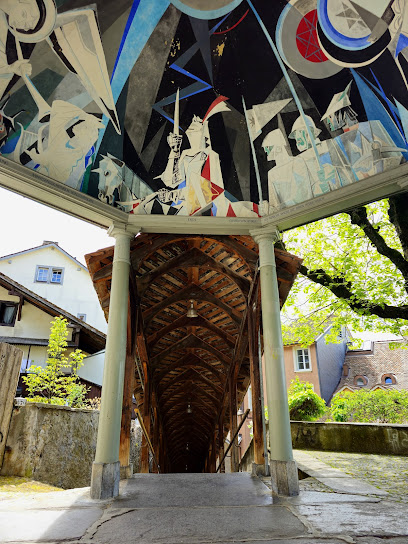
Unmissable attractions to see
BearPark
Explore BearPark in Bern: A Natural Haven for Bears and Wildlife Enthusiasts in the Heart of Switzerland.
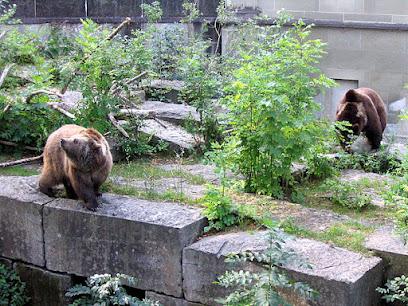
Maison Cailler
Experience the sweet legacy of Swiss chocolate at Maison Cailler, the oldest chocolate factory in Switzerland, offering tastings and interactive exhibits.
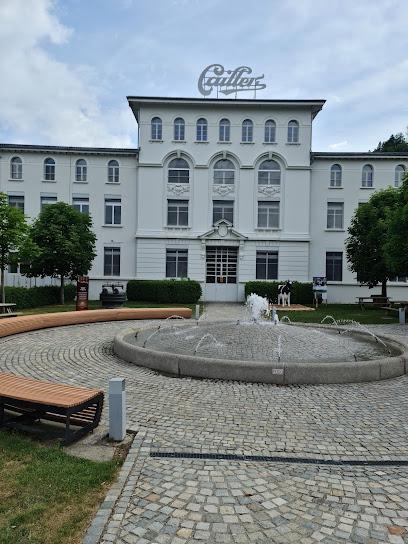
Château de Gruyères
Discover the breathtaking beauty and rich history of Château de Gruyères, a medieval castle steeped in Swiss culture and stunning mountain views.
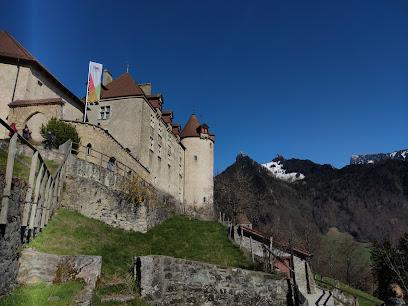
La Maison du Gruyère
Discover the rich heritage of Swiss cheese at La Maison du Gruyère, a delightful museum, shop, and restaurant in the picturesque town of Gruyères.
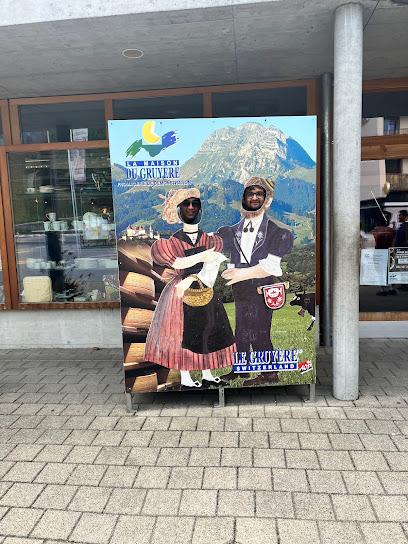
St. Beatus-Höhlen, Swiss Caves
Experience the breathtaking beauty and rich legends of the St. Beatus-Höhlen, a stunning cave system near Lake Thun in Switzerland.
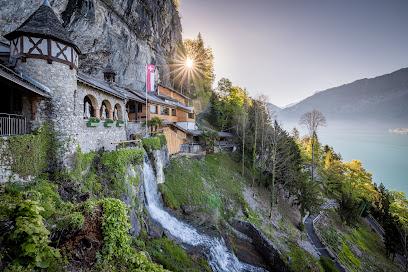
Ballenberg, Swiss Open-Air Museum
Explore the heart of Swiss culture at Ballenberg, an enchanting open-air museum showcasing historical buildings and traditional crafts.
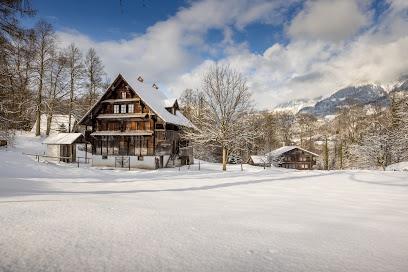
Dählhölzli
Explore Dählhölzli Zoo in Bern, where wildlife meets nature in a beautiful park setting, perfect for families and nature enthusiasts.
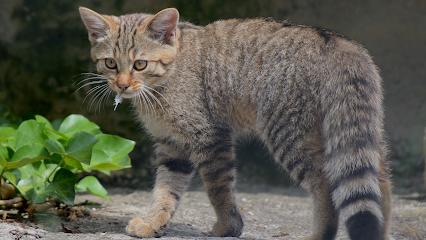
Naturpark Blausee
Experience the serene beauty of Blausee Nature Park, where turquoise waters meet stunning alpine landscapes in Switzerland.
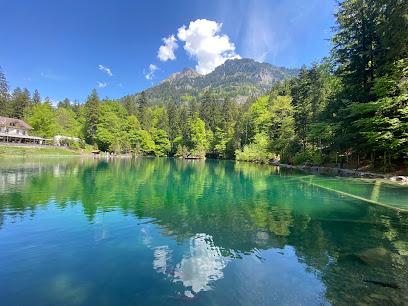
Jungfraujoch Sphinx Observatory
Discover breathtaking views and unique experiences at the Jungfraujoch Sphinx Observatory, the Top of Europe in the Swiss Alps.
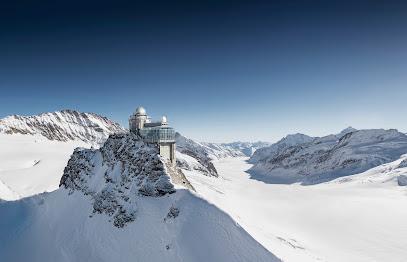
Wankdorf Stadium
Discover the excitement of Wankdorf Stadium in Bern, a premier destination for sports fans and event seekers, blending modern architecture with thrilling experiences.
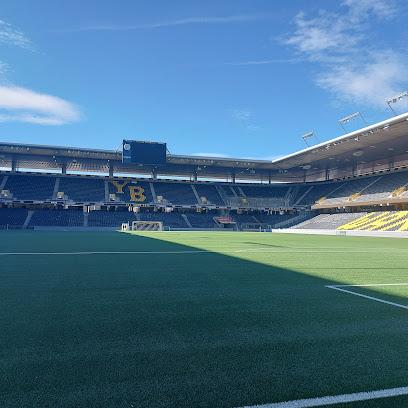
UNESCO - Bern Old Town
Explore Bern's Old Town, a UNESCO World Heritage site rich in medieval architecture and Swiss culture, perfect for history lovers and casual travelers alike.
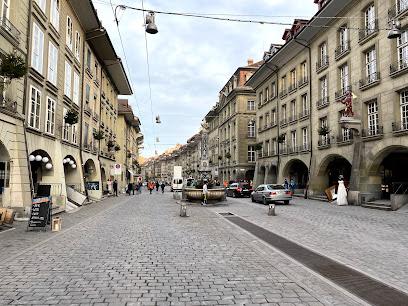
Cathedral of Bern
Explore the stunning Gothic architecture of the Cathedral of Bern, a UNESCO World Heritage Site, and enjoy breathtaking views of the Swiss Alps.
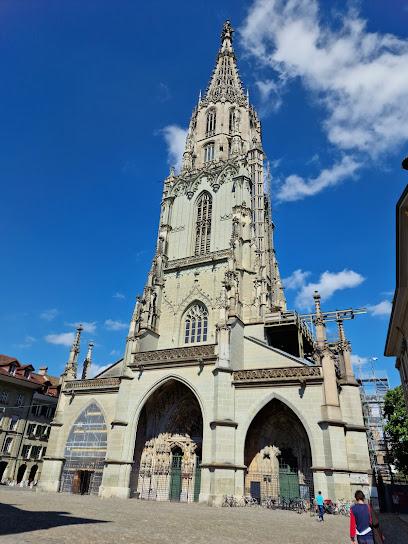
Giessbach Waterfalls
Discover the enchanting Giessbach Waterfalls in Brienz, Switzerland – a breathtaking natural attraction perfect for all nature lovers and adventurers.
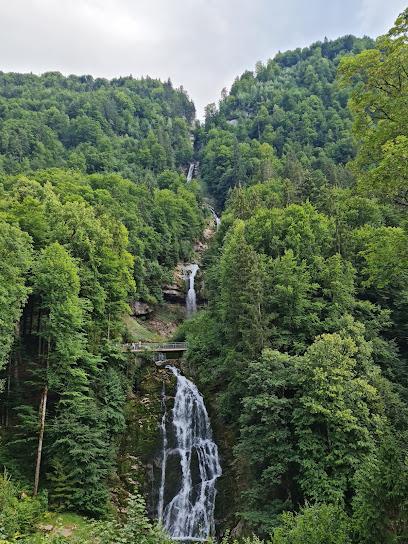
HR Giger Museum
Discover the fascinating surrealism of H.R. Giger at the HR Giger Museum in Gruyères, Switzerland, a captivating blend of art and cinematic heritage.
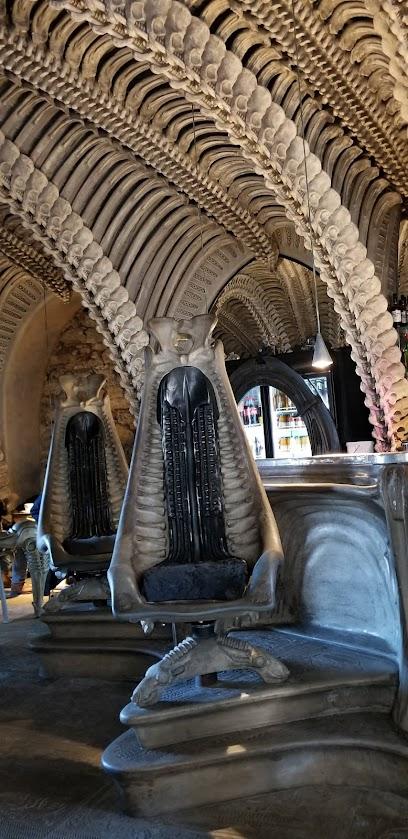
Aareschlucht
Discover the breathtaking beauty of Aareschlucht Gorge in Switzerland, where nature's wonders await every adventurer and nature lover.
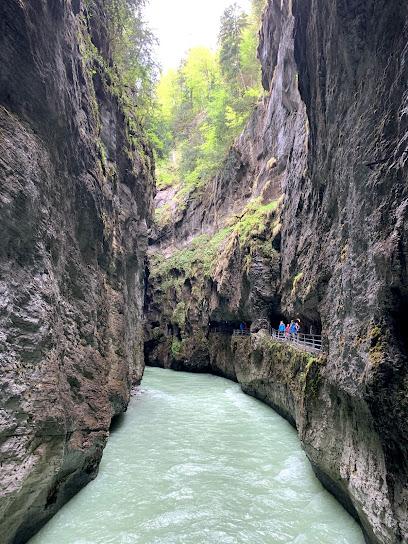
Essential places to dine
Beau Rivage
Experience authentic Italian cuisine at Beau Rivage in Thun - where every dish tells a story of tradition and flavor.
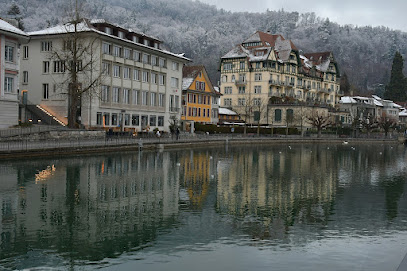
Ribs
Experience unparalleled dining at Ribs Steakhouse in Thun - where every steak is a masterpiece crafted with passion.
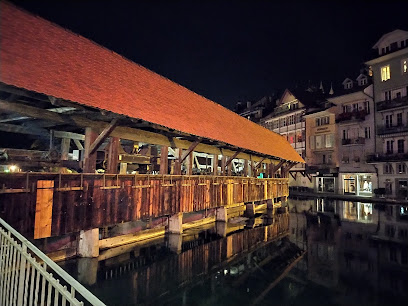
Schloss Hotel Thun
Experience Swiss hospitality at its finest in this historic castle hotel overlooking Lake Thun and the Alps.
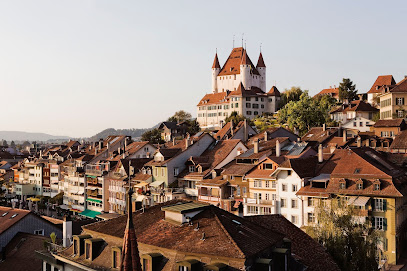
Rialto
Experience authentic Italian flavors at Rialto in Thun, where delicious pizzas meet cozy ambiance.
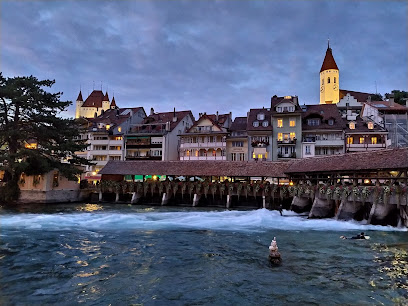
Ristorante Pizzeria al Ponte
Experience authentic Italian flavors at Ristorante Pizzeria al Ponte in Thun - where every dish tells a story.
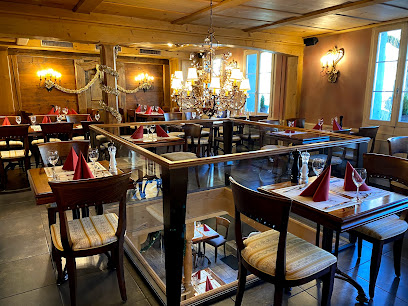
Chillounge GmbH
Experience culinary delights at Chillounge GmbH in Thun – where gourmet meets casual dining in a vibrant atmosphere.
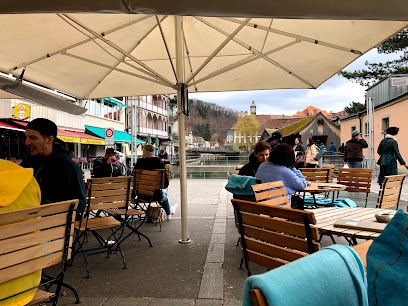
Restaurant Waisenhaus
Experience authentic Northern and Southern Italian cuisine at Restaurant Waisenhaus in Thun - A culinary journey awaits you!
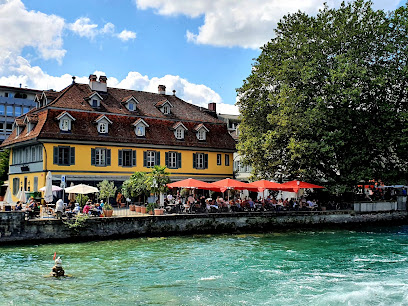
Primavera
Experience authentic Italian cuisine at Primavera in Thun, where every dish is crafted with passion and fresh ingredients.
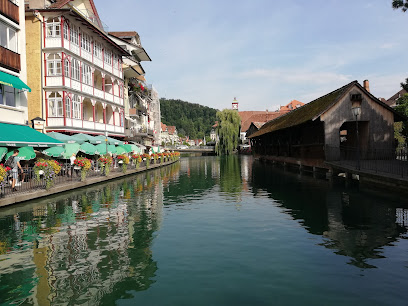
Dampfschiff
Discover authentic Swiss cuisine at Dampfschiff - a lakeside gem in Thun offering breathtaking views and delightful flavors.
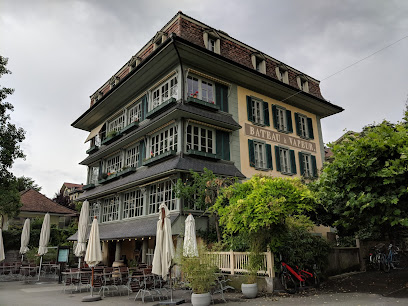
Gaststube im Tempel
Savor authentic Austrian flavors at Gaststube im Tempel in Thun - where every dish tells a story.
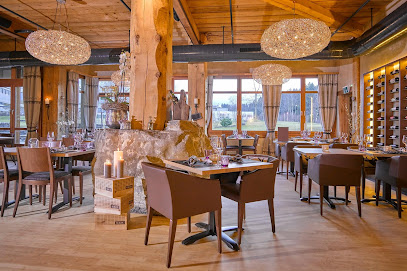
Hotel Aare Thun
Discover the perfect blend of traditional Swiss cuisine and modern hospitality at Hotel Aare Thun – where every meal is an experience.

Restaurant Burehuus
Experience authentic Swiss flavors at Restaurant Burehuus in Thun - where tradition meets taste in a cozy setting.
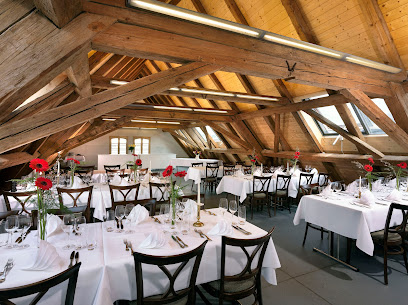
Restaurant Pizzeria La Perla
Discover authentic Italian cuisine at Restaurant Pizzeria La Perla in Thun - where every meal is a delightful journey through Italy's rich flavors.
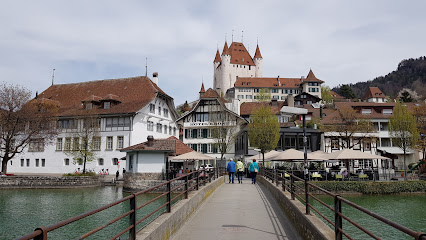
Sevens Restaurant Bar Take Away
Experience authentic Middle Eastern flavors in Thun at Sevens Restaurant Bar Take Away – where quality meets affordability.
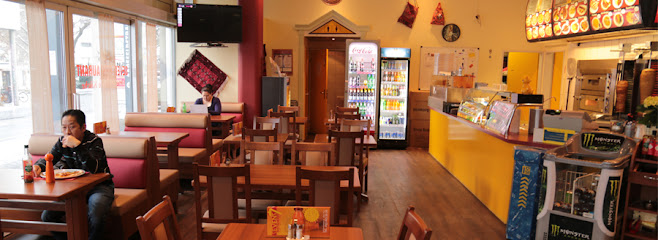
Del Padre
Discover authentic Italian cuisine at Del Padre in Thun - where every meal is a celebration of flavor and tradition.
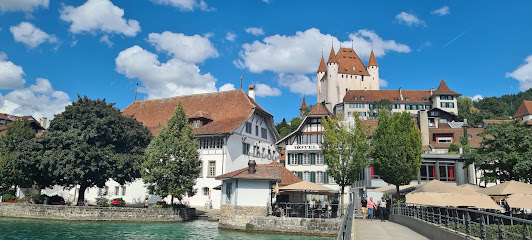
Markets, malls and hidden boutiques
Panorama-Center
Discover a shopping paradise at Panorama Center in Thun, featuring diverse stores, delightful eateries, and a vibrant atmosphere for all visitors.
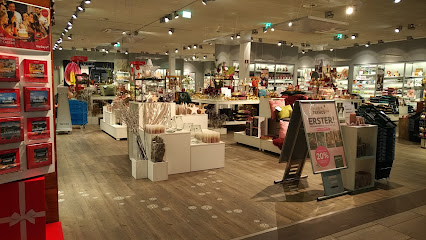
Zentrum Oberland
Explore the vibrant Zentrum Oberland in Thun, Switzerland – your ultimate shopping destination with diverse brands and delightful dining options.
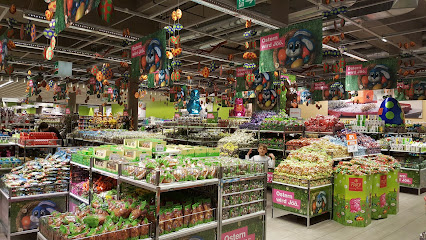
MANOR Thun
Experience the best of Swiss shopping at MANOR Thun, where fashion, home goods, and local flavors come together in a charming atmosphere.
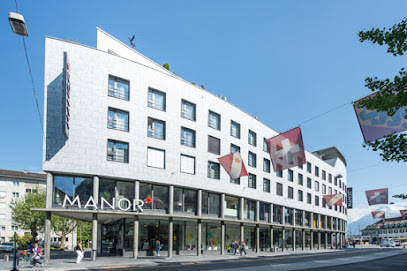
Loeb Warenhaus Thun
Explore a world of style and quality at Loeb Warenhaus Thun, where Swiss elegance meets diverse shopping experiences.
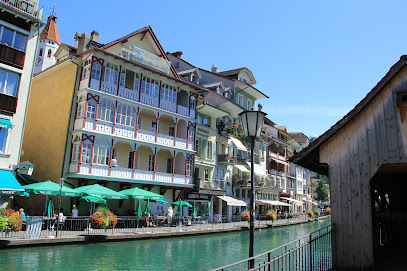
Krebser AG
Explore Krebser AG in Thun for a diverse selection of stationery, books, and digital printing services, perfect for tourists and locals alike.
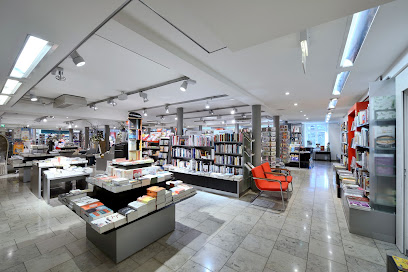
Nespresso Boutique
Explore the exquisite flavors of coffee at Nespresso Boutique in Thun, where passion meets quality in every cup.
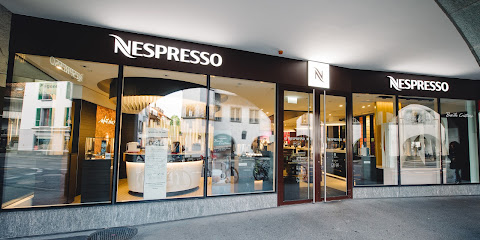
Metro Boutique Thun
Discover the best of fashion at Metro Boutique Thun, where style meets quality for everyone in the family.
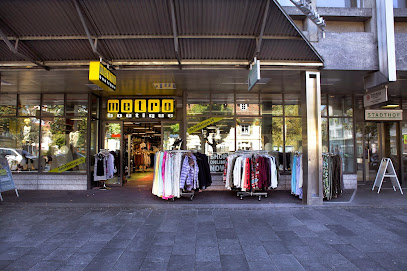
CATLOVERS
Explore CATLOVERS in Thun for a unique shopping experience filled with cat-themed treasures and pet supplies.
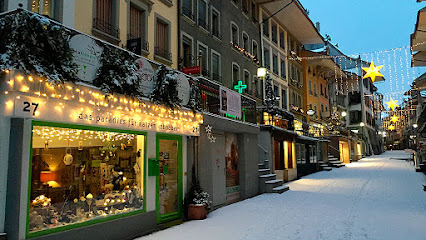
Secret Nature Thun
Explore the unique offerings of Secret Nature Thun in Switzerland, where cannabis, literature, and metaphysical supplies meet in a cozy atmosphere.
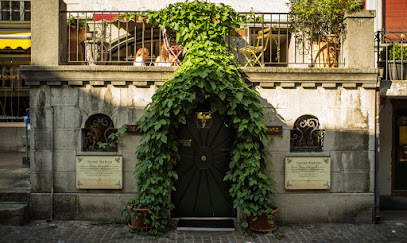
Clochard Your Jeans Store
Discover the finest denim collection at Clochard Your Jeans Store in Thun, where quality meets style in a charming boutique setting.
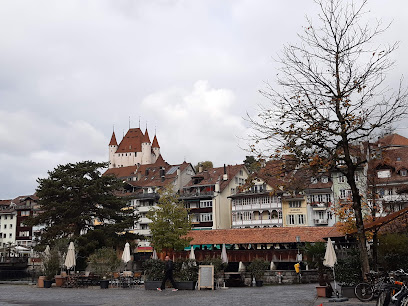
Schaufelberger AG
Discover family-friendly shopping at Schaufelberger AG in Thun, offering everything from baby clothes to crafting supplies.
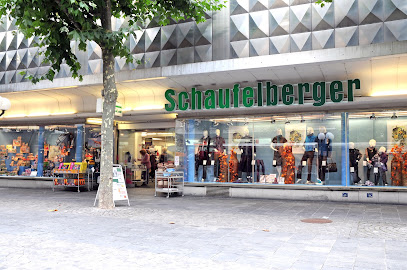
JACK & JONES
Discover the latest trends in men's fashion at JACK & JONES in Thun, where style meets affordability in a charming boutique atmosphere.
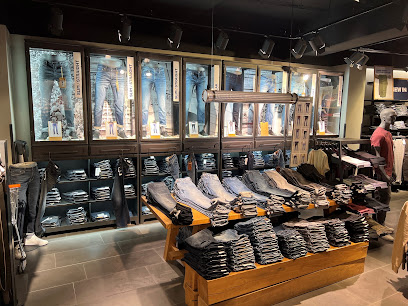
Läderach
Discover the exquisite world of Swiss chocolates at Läderach in Thun, a haven for chocolate lovers with artisanal delights and rich flavors.
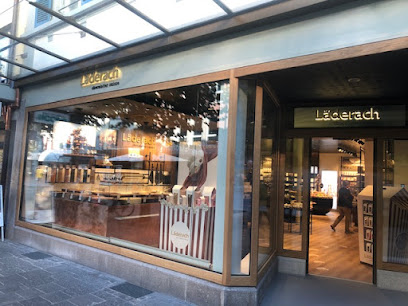
Tally Weijl
Explore the latest trends in women's fashion at Tally Weijl, a stylish clothing shop in the heart of Thun offering chic apparel and accessories.
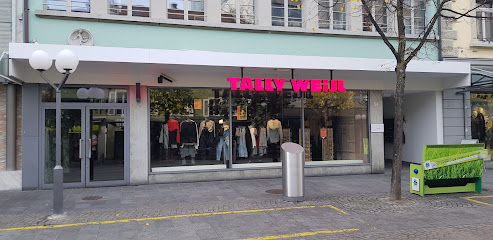
WE Fashion Thun - Bälliz
Discover the latest fashion trends for all ages at WE Fashion Thun, where style meets Swiss charm in the heart of Thun.
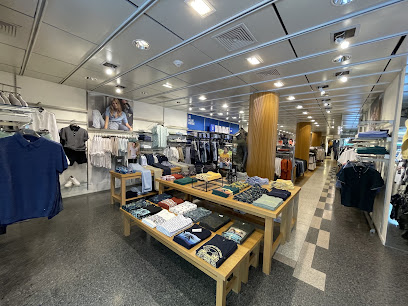
Essential bars & hidden hideouts
McArthurs Pub Thun
Discover the charm of Irish culture at McArthurs Pub Thun, where traditional dishes and lively atmosphere await every visitor.
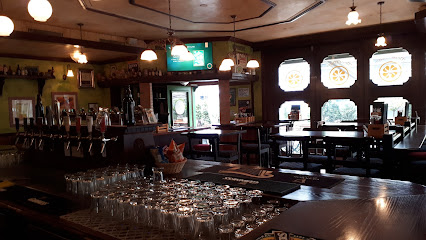
El Camino
Experience the vibrant atmosphere and delightful cuisine at El Camino, Thun's must-visit bar and café offering a taste of local flavor.
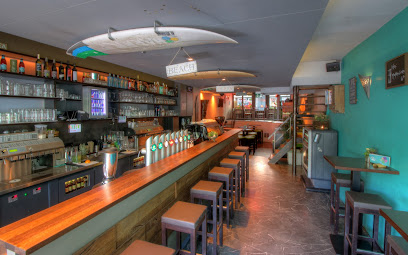
Atelier Classic Bar
Discover the art of cocktail making at Atelier Classic Bar in Thun, where every drink is a masterpiece crafted for an unforgettable experience.
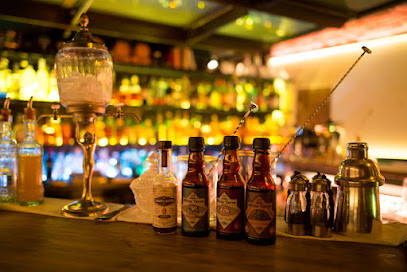
Cafebar Alte Oele
Experience the cozy charm of Cafebar Alte Oele in Thun, where café culture meets vibrant bar life, perfect for relaxation and socializing.
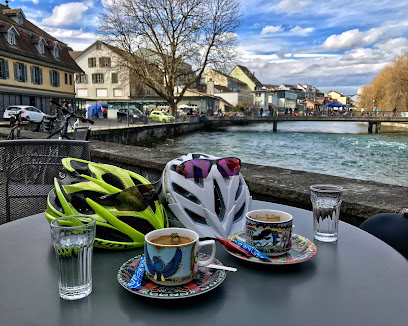
Mühlibar
Discover the cozy charm of Mühlibar in Thun, offering a perfect blend of local flavor and stunning views in a welcoming atmosphere.
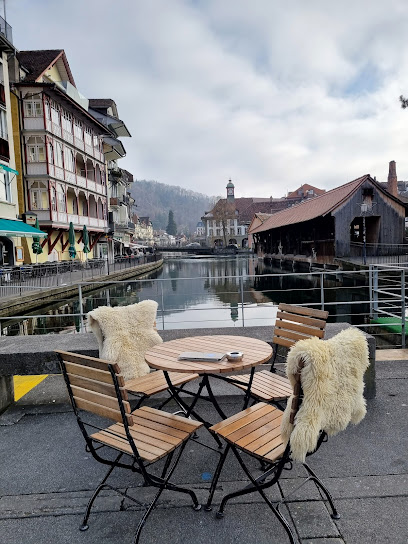
Schmiedstube Bar Thun
Discover the vibrant nightlife at Schmiedstube Bar Thun, where great drinks and a friendly atmosphere await you in the heart of the Swiss town.
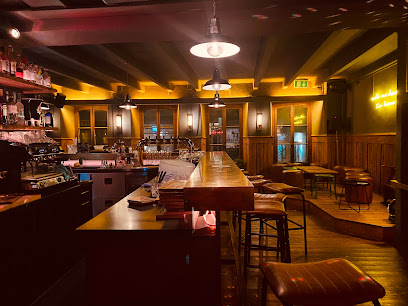
Café Bar Zentral
Discover Café Bar Zentral, a cozy café-bar in Thun offering delightful drinks, light bites, and a relaxed atmosphere perfect for tourists.

Mundwerk
Discover Mundwerk in Thun - a vibrant cultural hub offering delicious food, live music, and a lively nightlife experience.
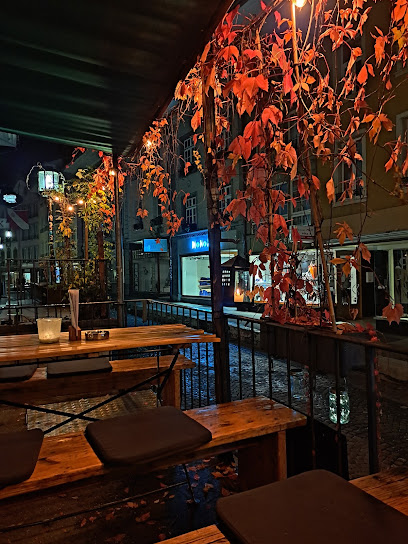
Red-Ox Nightlife & Restaurant Bar Ochsen
Discover the vibrant blend of dining and nightlife at Red-Ox Nightlife & Restaurant Bar in Thun, offering an unforgettable experience for all guests.
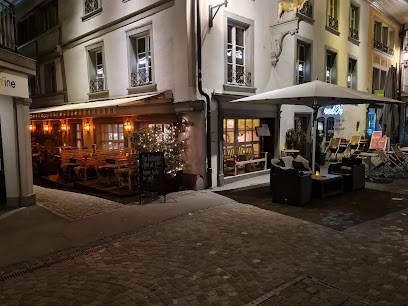
Galerie Boutique Bar
Experience the vibrant ambiance and exquisite drinks at Galerie Boutique Bar, a must-visit destination in Thun, Switzerland for all travelers.
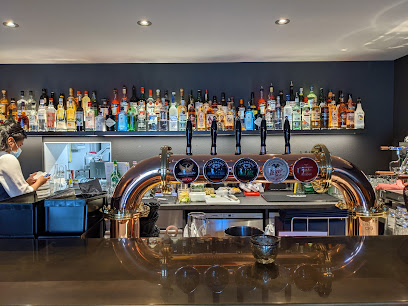
Turm von Thun (ehem. Turm Bar)
Discover the spirited nightlife at Turm von Thun, a premier live music bar in the heart of Thun, Switzerland, where rhythm meets local charm.
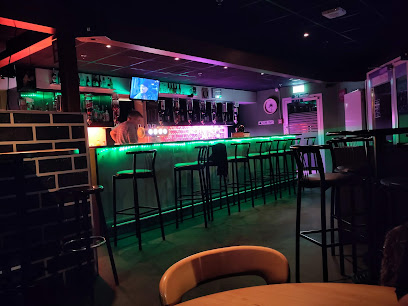
BARBAR
Experience the lively atmosphere of BARBAR in Thun, where exceptional drinks and social vibes meet in a stylish setting.
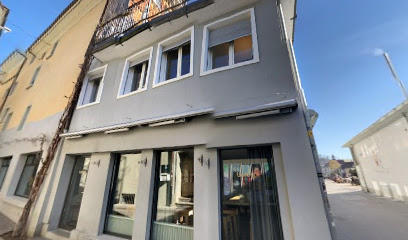
Altes Keller-Theater GmbH
Discover the cozy ambiance and vibrant culture at Altes Keller-Theater GmbH, a must-visit bar in the heart of Thun, Switzerland.
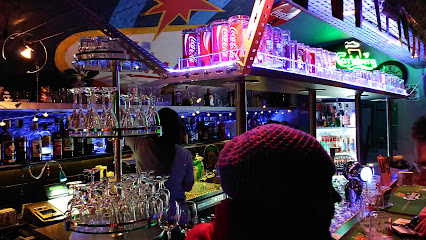
Schlossbergbar
Discover the lively ambiance and delicious offerings at Schlossbergbar, a top bar and restaurant in the heart of Thun, Switzerland.
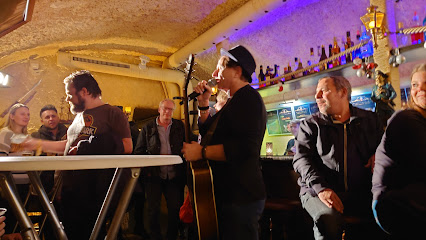
Local Phrases
-
- HelloGrüezi
[grü·ə·tsi] - GoodbyeAdieu
[a·djø] - YesJa
[ja] - NoNei
[nai] - Please/You're welcomeBitte
[bɪ·tə] - Thank youMerci
[mɛr·si] - Excuse me/SorryEntschuldigung
[ɛntˈʃʊldɪˌgʊŋ] - How are you?Wie geht's?
[viː ɡeːts] - Fine. And you?Guet. Und dir?
[ɡuːt ʊnt diːr] - Do you speak English?Sprechen Sie Englisch?
[ʃprɛxən ziː ˈʔɛŋlɪʃ] - I don't understandIch verstehe nicht
[ɪç fɛrˈʃteːə nɪçt]
- HelloGrüezi
-
- I'd like to see the menu, pleaseIch hätte gerne die Speisekarte, bitte
[ɪç ˈhɛtə ˈɡɛrnə diː ˈʃpɛɪzəˌkartə ˈbɪtə] - I don't eat meatIch esse kein Fleisch
[ɪç ˈɛsə kaɪn flaɪʃ] - Cheers!Prost!
[prɔst] - I would like to pay, pleaseIch möchte bitte zahlen
[ɪç mœçtə ˈbɪtə ˈtsaːlən]
- I'd like to see the menu, pleaseIch hätte gerne die Speisekarte, bitte
-
- Help!Hilfe!
[ˈhɪlfə] - Go away!Gehen Sie weg!
[ˈɡeːən ziː vɛk] - Call the Police!Rufen Sie die Polizei!
[ˈruːfn ziː diː pɔˈliːtsaɪ̯] - Call a doctor!Rufen Sie einen Arzt!
[ˈruːfn ziː ˈaɪ̯nən ˈaʁts] - I'm lostIch habe mich verirrt
[ɪç ˈhaːbə mɪç ˌvɛrˈɪrt] - I'm illIch bin krank
[ɪç bɪn kraŋk]
- Help!Hilfe!
-
- I'd like to buy...Ich möchte kaufen...
[ɪç mœçtə ˈkaʊ̯fən] - I'm just lookingIch schaue nur
[ɪç ʃaʊ̯ə nuːr] - How much is it?Wie viel kostet das?
[viː fiːl ˈkɔstət das] - That's too expensiveDas ist zu teuer
[das ɪst tsuː ˈtɔɪ̯ər] - Can you lower the price?Können Sie den Preis senken?
[ˈkœnən ziː dɛn praɪ̯s ˈzɛŋkən]
- I'd like to buy...Ich möchte kaufen...
-
- What time is it?Wie spät ist es?
[viː ʃpɛt ɪst ɛs] - It's one o'clockEs ist ein Uhr
[ɛs ɪst aɪ̯n ʔuːr] - Half past (10)Halb elf
[halb ɛlf] - MorningMorgen
[ˈmɔrɡən] - AfternoonNachmittag
[ˈnaχmɪˌtaːk] - EveningAbend
[ˈaːbənt] - YesterdayGestern
[ˈɡɛstərn] - TodayHeute
[ˈhɔɪ̯tə] - TomorrowMorgen
[ˈmɔrɡən] - 1Eins
[aɪ̯ns] - 2Zwei
[tsvaɪ̯] - 3Drei
[dʁaɪ̯] - 4Vier
[fiːɐ̯] - 5Fünf
[fʏnf] - 6Sechs
[zɛks] - 7Sieben
[ˈziːbən] - 8Acht
[axt] - 9Neun
[nɔɪ̯n] - 10Zehn
[tsen]
- What time is it?Wie spät ist es?
-
- Where's a/the...?Wo ist ein/der...?
[vo ɪst aɪ̯n/deɐ] - What's the address?Was ist die Adresse?
[vas ɪst diː ˈadresə] - Can you show me (on the map)?Können Sie mir das zeigen (auf der Karte)?
[ˈkœnən ziː mɪr das ˈʦiːɡən (aʊ̯f deːɐ ˈkarta)] - When's the next (bus)?Wann kommt der nächste (Bus)?
[van kɔmt deːɐ ˈnɛχstə (bʊs)] - A ticket (to ....)Eine Fahrkarte (nach ....)
[ˈaɪ̯nə ˈfaːɐ̯kartə (naχ)]
- Where's a/the...?Wo ist ein/der...?
History of Thun
-
Thun, located on the banks of the River Aare, has a rich history dating back to the Bronze Age. The region was settled by Celtic tribes before falling under Roman control. The first documented mention of Thun was in 1133, but the area had been inhabited long before that. In the early medieval period, it became a strategic military and commercial hub due to its location at the gateway to the Bernese Oberland.
-
One of Thun's most iconic landmarks, Thun Castle, was constructed by Duke Berthold V of Zähringen around 1190. The castle served as a stronghold and residence for the Zähringer family, who played a crucial role in the development of the region. The impressive structure, with its four corner towers and central keep, stands as a testament to the medieval military architecture of the time and provides panoramic views of the city and the surrounding Alps.
-
After the extinction of the Zähringer dynasty in 1218, Thun became a subject of contention among various regional powers. It was eventually acquired by the Counts of Kyburg and later by the Habsburgs. In 1384, the city was purchased by the canton of Bern, marking the beginning of Thun's integration into the Swiss Confederation. This transition brought significant political and economic stability to the region.
-
Thun's strategic location along the Aare River and its proximity to Lake Thun made it an important trading center. The city flourished during the late medieval period and into the Renaissance, with its markets and crafts attracting merchants from across Europe. In the 19th century, Thun became a focal point for Swiss industrialization. The introduction of railways and the development of hydroelectric power harnessed from the Aare River fueled the growth of factories and businesses, transforming Thun into a modern industrial city.
-
Thun has long held military significance due to its strategic location. In the 19th century, the Swiss Army established a major training facility in Thun, which remains operational to this day. The city's military academy has trained many of Switzerland's top officers and continues to be an important institution for national defense. The presence of the military has also contributed to the local economy and cultural landscape.
-
Today, Thun is a vibrant city that seamlessly blends its historical heritage with modern amenities. The old town, with its well-preserved medieval architecture, attracts tourists from around the world. Cultural events, such as the Thunerseespiele, an open-air theater festival, and the Thun Festival, highlight the city's rich cultural tapestry. The beautiful natural surroundings, including Lake Thun and the nearby Alps, make Thun a popular destination for outdoor enthusiasts and history buffs alike.
Thun Essentials
-
Thun is located in the Bernese Oberland region of Switzerland. The nearest major airport is Bern Airport (BRN), approximately 30 kilometers away. From Bern, you can take a direct train to Thun, which takes around 30 minutes. Zurich Airport (ZRH) and Geneva Airport (GVA) are also convenient options, with train journeys to Thun taking about 2 hours from Zurich and 2.5 hours from Geneva. Swiss Federal Railways (SBB) offers frequent and reliable train services to Thun from various Swiss cities.
-
Thun is well-connected by an efficient public transportation system, including buses and trains. The city center is compact and walkable, making it easy to explore on foot. For longer distances, buses operated by the Verkehrsbetriebe STI AG are available. Taxis are readily available but can be expensive. Renting a bicycle is a popular option, and there are several rental shops in the city. Thun also has a boat service on Lake Thun, offering scenic trips to nearby towns.
-
The official currency in Switzerland is the Swiss Franc (CHF). Credit and debit cards are widely accepted in hotels, restaurants, and shops. However, it's advisable to carry some cash for small purchases and in case you visit places that don't accept cards. ATMs are plentiful in Thun, so withdrawing cash is convenient. Currency exchange services are available at banks and some hotels.
-
Thun is generally a very safe city with low crime rates. However, as with any travel destination, it is advisable to take standard precautions. Avoid leaving your belongings unattended, especially in crowded areas like markets and train stations. There are no specific high-crime areas targeting tourists, but it is always best to stay vigilant and aware of your surroundings.
-
In case of emergency, dial 112 for immediate assistance. Thun has well-equipped medical facilities, and pharmacies are available for minor health issues. It is recommended to have travel insurance that covers medical emergencies. The local police station is located in the city center, and they can assist with any safety or legal concerns you may have.
-
Fashion: Do dress smartly and comfortably. Switzerland is known for its casual yet neat dressing style. Avoid overly revealing clothing. Religion: Do respect local customs and traditions. When visiting churches, dress modestly and keep noise to a minimum. Public Transport: Do be respectful and give up your seat to elderly passengers. Don’t eat or drink on public transport. Greetings: Do greet people with a friendly 'Grüezi' (hello) or 'Hallo'. A firm handshake is common. Eating & Drinking: Do try local specialties such as cheese fondue and Rösti. Don’t refuse hospitality, as it is considered impolite.
-
To experience Thun like a local, visit the weekly markets held in the city center where you can buy fresh produce and local crafts. Take a stroll along the Aare River and enjoy the beautiful views of the old town. Engage with locals at cafes and restaurants; they are often friendly and willing to share interesting stories about Thun. Don’t miss a visit to the Thun Castle, which offers panoramic views of the city and Lake Thun.
Nearby Cities to Thun
-
Things To Do in Interlaken
-
Things To Do in Bern
-
Things To Do in Murren
-
Things To Do in Grindelwald
-
Things To Do in Lucerne
-
Things To Do in Montreux
-
Things To Do in Vevey
-
Things To Do in Lausanne
-
Things To Do in Zermatt
-
Things To Do in Basel
-
Things To Do in Zurich
-
Things To Do in Ascona
-
Things To Do in Locarno
-
Things To Do in Geneva
-
Things To Do in Lugano













